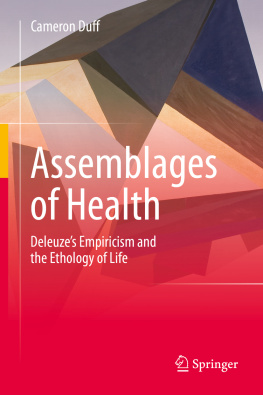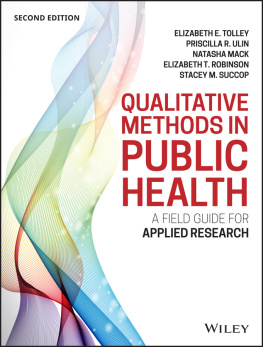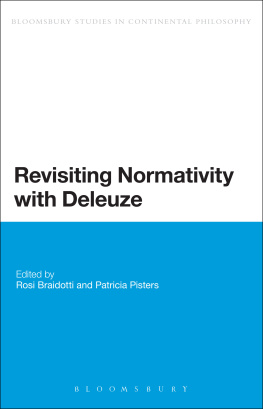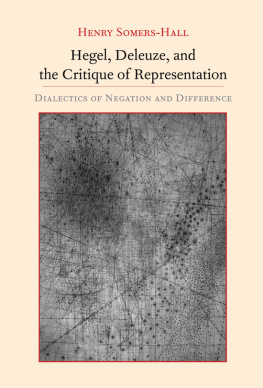1. Introduction
Few issues trouble contemplation quite like the paradox of health. It is at once the most natural of embodied states and yet remains forever vulnerable to the hostilities of an inclement environment. The formal study of health and its physical, social and political manifestations occupies huge swathes of the contemporary human sciences, demanding an ever increasing share of available research funding (Greco : 227230). It is against this backdrop of a profound shift in the meaning, practice and experience of health and illness that the present book ought to be situated.
The varied assessments of health and illness offered in the work of Michel Foucault, Nikolas Rose, Ulrich Beck, John Law and Annemarie Mol, among many others, suggest three enduring problems central to the concerns of this book. First, the obligations demanded by an emergent will to health indicate the need for a substantive definition of health that goes beyond traditional understandings of normal functioning figured as the mere absence of disease (Blaxter ). This only confounds an already elusive and ill-defined notion, one that is routinely regarded as a taken-for-grant given, even as it takes on ever more significant moral, political, ontological, ethical and aesthetic baggage. The book takes up the indeterminacy of health, offering a kind of health in indeterminacy.
The second preoccupation of the book involves the ontological and empirical distinctions that have long sustained health care research, planning and service delivery in the West. It is routinely noted that distinctions such as natural/artificial, biology/technology, inside/outside and subject/object are beginning to break down in the health and social sciences in ways that have significant and far reaching implications, not only for the way health itself is conceived, but also for the way in which human life is positioned in research and practice (Mol : 78) has recently claimed that a strong distinction between humans and nonhumans is no longer required for research purposes in the human sciences. Assemblages of Health examines the implications of this claim, exploring the prospects of a posthuman account of health and illness, along with the value of such an account for research innovation in the health and social sciences.
The third and final organising theme of the book builds on the second in presenting a critique of the social and structural determinants of health. Recent analysis of the social determinants extends and deepens earlier studies which described a social gradient in health outcomes between poorer groups and those with higher social and economic status (see Dawson ). This problem recalls enduring debates in the social sciences regarding the links between structure and agency, the macro and the micro, yet it also introduces new challenges for applied research.
At issue is the identification of the specific mechanisms or processes by which macro-structural factors may be shown to mediate health outcomes in particular settings among particular groups at particular times. Philosophers of science such as Bruno Latour, Isabelle Stengers and Annemarie Mol insist that ideas like the social determinants of health rely on a dubious logic of social context in order to assert the links between structure and place (Duff ). Even if one accepts the caveat that population health research is primarily concerned with quantifying risk and the probability of harm, the identification of associations between already complex social and structural phenomena does little to confirm how more direct causal relationships may be identified between social processes and the experience of health in discrete settings.
In the absence of a properly causal account of social context, amenable to application and analysis in a wide variety of settings, the whole notion of the social determinants of health risks being reduced to a rhetorical trope, useful for expanding the administrative purview of health and social policy but unhelpful as a guide for action in individual settings. For how is one to decide in a particular locale, at a particular time, how one should tackle social processes as diverse as employment trends, gender roles, cultural attitudes, economic fluctuations and poverty? Where should ones priorities lie? Where should one start? And how do the various social determinants already identified interact or compound one another such that the likely unintended consequences of proposed interventions might be assessed? In canvassing these issues, I am not seeking to undermine the broader aim of clarifying the social and structural aspects of health and wellbeing in particular settings. I am more concerned with the ethical, pragmatic and political implications of this work. The risk, illustrated so profoundly in recent analyses of the social determinants of health, is that the context and structure are installed as near monolithic constants in everyday life, impossible to ignore but equally resistant to remedial action. Indeed, recent assessments of the social determinants of health are so exhaustive that one is left wondering whether the task confronting health and social policy has simply become too daunting. The gap between structure and locale, politics and place seems wider than ever, while there is little support in recent studies for determining how specific structural factors might be tackled at the local level, where presumably health is actually experienced as an inescapable fact of daily life. It is equally unclear how broad structural interventions, such as changes in employment, housing or welfare arrangements, actually impact specific health outcomes in particular settings. Arguably a more useful course for analysis is to devise a method for identifying how select local and non-local actors, entities and processes come to participate in, or otherwise meditate health related phenomena in particular places at particular times. This suggests the need to move away from the habit of differentiating particular health problems, conditions or phenomena from their putative social contexts.
The notion that health problems are mediated in a social context the primary theoretical condition of all analysis of the social determinants of health effects an ontological, epistemological and experiential disjuncture between the health status of individual bodies (or populations) and the settings, contexts or environments these bodies may be said to inhabit. This is a logic which presupposes health problems and their contexts as discrete axioms. The reading of Deleuzes methods provided in this book establishes an alternative logic to guide research into the social, political and economic dimensions of health. Modelled after the assemblage, I will argue that health cannot be methodologically, ontologically or epistemologically distinguished from particular experiential, social, political, economic or cultural factors, processes or determinants. There is, in this sense, no social aspect of health distinguishable from economic or political ones in anything other than a particular species of epidemiological analysis. In what Deleuze (: 102104), suggesting a critique of the social determinants of health that will be applied later in the book to case studies investigating the experience of recovery from mental illness and the most effective way of responding to problems associated with the use of alcohol and other drugs.














